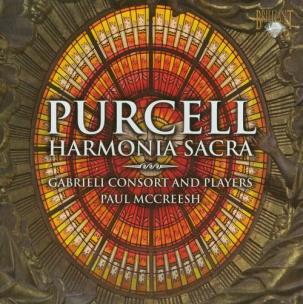- Regulamin
- Koszty dostawy
- Kontakt
- Dziś w ofercie 234 214 produkty
KSIĄŻKI
- Albumy
- Beletrystyka
- Biografie
- Dla dzieci i młodzieży
- Edukacja
- Ekonomia i biznes
- Ezoteryka
- Historia
- Informatyka
- Kalendarze
- Komiksy
- Kryminał i sensacja
- Kultura i sztuka
- Literatura faktu
- Literatura kobieca
- Literatura piękna
- Medycyna
- Nauka języków obcych
- Nauki humanistyczne
- Nauki przyrodnicze
- Nauki ścisłe
- Podręczniki
- Poradniki
- Prawo i administracja
- Przewodniki i podróże
- Psychologia
- Religia
- Sport
- Technika
- Zdrowie i uroda
ZABAWKI
- Artykuły dla niemowląt
- Bączki
- Bujaki i skoczki
- Ciągnij / pchaj
- Dla niemowlaka
- Grzechotki i gryzaki
- Karuzele i pozytywki
- Maty i centra zabaw
- Projektory i lampki
- Sortery i piramidki
- Zabawki
- Edukacyjne i kreatywne
- Figurki
- Klocki
- Lalki
- Pojazdy
- Pluszaki i maskotki
- Sport i rekreacja
- Zabawa w dom
- Zabawki drewniane
- Puzzle
- Do 200 elementów
- 201-500 elementów
- 501-1000 elementów
- Ponad 1000 elementów
- Puzzle 3D
ART. PAP
- Artykuły biurowe
- Artykuły piśmiennicze
- Bloczki i kartki samoprzylepne
- Dziurkacze
- Kalkulatory
- Nożyczki i nożyki
- Skoroszyty
- Teczki
- Wizytowniki
- Zszywacze
- Artykuły szkolne
- Akcesoria szkolne
- Modelowanie
- Notatniki i zeszyty
- Piórniki
- Plecaki i torby
- Pojemniki na śniadanie
- Pomoce naukowe
- Przybory matematyczne
- Przybory rysunkowe
- Upominki i gadżety
- Akcesoria do książek
- Artykuły balowe
- Breloki i zawieszki
- Drobiazgi, różności
- Kubki
- Oferta Świąteczna
- Papeteria, kartki i naklejki
- Skarpetki Many Mornings
- Upominki
GRY
MULTIMEDIA
- Audiobooki
- Beletrystyka
- Biografie i wspomnienia
- Dla dzieci i młodzieży
- Fantastyka
- Filozofia i religia
- Historia
- Literatura faktu i reportaż
- Poradniki
- Sensacja i kryminał
- Filmy DVD/BD
- Animowane
- Biograficzne
- Fantasy
- Horrory
- Komedie
- Romanse
- Science Fiction
- Sensacyjne / kino akcji
- Thrillery
- Muzyka CD
- Alternatywna
- Blues
- Dla dzieci
- Jazz
- Klasyczna
- Piosenka aktorska i poetycka
- Pop
- Rock
- Świąteczna i kolędy
- Akcesoria GSM
- Głośniki
- Kable i adaptery
- Klawiatury
- Myszy
- Słuchawki
PROMOCJE
ZDROWIE
LEGO

Purcell: Harmonia Sacra
Wydawca:
Brilliant Classics
ISBN:
5028421938998
EAN:
5028421938998
oprawa:
Plastikowa
format:
14.0x12.0cm
język:
angielski
rok wydania:
2010
(0) Sprawdź recenzje
Opis produktu
Zasady bezpieczeństwa
Purcell was not just a creature of the theatre -- his genius with the human voice extended to secular songs and Odes for Queen Mary. Less familiar are his sacred songs. Although some appeared in John Playford's
Harmonia Sacra of 1688 and 1693, many remained in manuscript and known only to a select few. There is some credence to the thought that Purcell intended them for an elite group. The choice of text is fastidious, and probably points towards a discerning friend in the court musical circles. For example, the metaphysical poets were out of fashion at this time, but whoever Purcell's intended audience was, such poets remained a firm favourite for the composer. Other texts are by his contemporaries at court, lavished with as much care and attention as the settings from the Bible and the Book of Common Prayer. The settings are scored for small forces -- one to two voices, accompanied by continuo. The emotional range, however, is huge, with contemplative and introspective songs rubbing shoulders with numbers such as 'O, I'm sick of life', where the singer rails against a cruel avenging God. In the setting 'In guilty night' or 'Saul and the Witch of Endor', you can sense the world of opera is never far away. This recording intersperses the sacred songs with organ works -- Purcell was one of the most brilliant organists of his day, but surprisingly he only left about six works for the instrument.
Further information
- Recording made in 1994
- Gramophone magazine 'Editor's Choice' in July 1995
- 2009 is the 350th anniversary of Purcell's birth, and his music will be the focus of much attention in
the media and in live performance
- Paul McCreesh and the Gabrieli Consort are supreme in this repertoire
CENA:
16,95
zł
Cena detaliczna:
19,99 zł
15%
rabatu
Najniższa cena z ostatnich 30 dni: 16,95 zł
Produkt niedostępny
Uwaga!!!
Ten produkt jest zapowiedzią. Realizacja Twojego zamówienia ulegnie przez to wydłużeniu do czasu premiery tej pozycji. Czy chcesz dodać ten produkt do koszyka?


Wybierz wariant produktu
